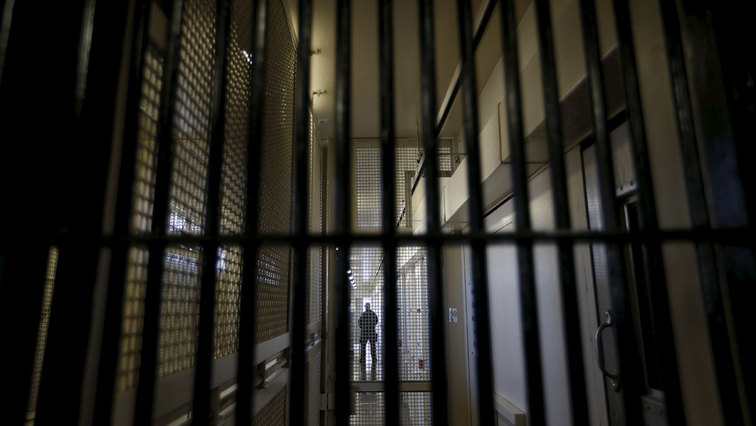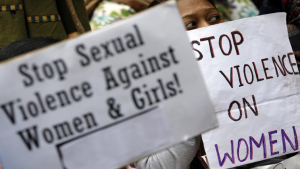Gender-based violence(GBV) and femicide has now been declared a pandemic in South Africa. This highlights a high number of women who are being abused.
Gender-based violence (GBV) is not only devastating for survivors, but some of them often find themselves in prison for, amongst other things, retaliation or self-defence.
According to the World Health Organization, 30% of women worldwide have been subjected to either physical or sexual abuse by their intimate partner in their lifetime.
39-year-old Molly Thwesha was convicted for child abuse in 2019, for which she is now serving three years. Thwesha is also a victim of gender-based violence. She says she regrets neglecting her children, for her then-boyfriend, who was abusive towards her.
“We were living together. He will always come home drunk then start beating and stabbing me. He would beat me in front of my children. There was a time when he stabbed me when I was pregnant for him. I was nine months pregnant. I was taken to the hospital after calling for help. I had to give birth right away. My baby came with a stab wound on his arm,” says Thwesha.
DISCUSSION: SA women fall prey to Gender-Based Violence crimes
Despite the abuse, she abandoned her children to be with him. She says she hoped he would change, only for her to land in prison.
“I thought he would stop abusing me once I give him a child. I was arrested for neglecting and abusing my children because I put him first. I would leave my children at home just to be with him. I’m now in prison because of him. I always dropped charges against him whenever he stabbed and beat me,” says Thwesha.
Imprisonment for GBV victim
39-year-old Diana Shopha, who has been convicted for murder, still maintains her innocence. She says life with her boyfriend was characterised by constant fights and quarrels. Even the incident, which resulted in her incarceration, was because of their regular fights.
“I was living with my boyfriend and the problem is that we were always fighting. I was always preparing myself for a fight every weekend. We had invited his friends over for a braai on the day of the incident. We also had a fight that day. The house caught fire, how I don’t know. The candle burnt the curtain. I ran to call for help,” says Shopha.
Although she regrets the passing of her boyfriend’s friend during the fire which burnt her house, she says her greatest regret is believing that her abusive boyfriend loved her.
“When I came back, his friend had died. The community was watching in shock as our house burnt. They said I killed him. I was then arrested in 2019. I did not do it. Women can easily fall for this trap because the person who put me in this situation is the person that I loved so much and I thought he loved me too. Even when he abused me,” says Shopha.
Social Development Department training initiative empowers victims of Gender-Based Violence
32-year old Julia Khoza was convicted for attempted murder in 2020. She stabbed her abusive boyfriend, who was cheating on her, with her best friend. She used a knife that was meant for her.
“My then-boyfriend was cheating on me with my best friend. I got angry and took a knife that he promised to stab me with as he was abusive, I went to his place only to find him with her. I stabbed them both. I then went to the police station to report the incident. He opened a case against me two weeks after he was discharged. I was then arrested for attempted murder. I regret doing that. Now I know how to control my anger and that is because of the programs in this prison,” says Khoza.
GBV crisis
A common narrative amongst these women is the alleged abuse at the hands of their partners. According to the Deputy Minister of Correctional Services, Inkosi Phathekile Holomisa, a high number of men still continue to kill women.
“When looking at a number of inmates who are females having been convicted for murder and juxtaposing that with the number of males, I wouldn’t say the women are now taking the upper hand. It continues to be males who continue to kill the women. In most instances, it is because of the vulnerability of the women that they end up killing their husbands. When males decide to ill-treat females, they find themselves at the end of the day with then only resorting to killing them, thinking the problem will go away,” says Holomisa.
The Deputy Minister says rehabilitation programmes must be intensified and cooperation with the communities increased to avoid releasing perpetrators who go back to abuse women.
WARNING: THE VIDEO BELOW CONTAINS GRAPHIC DETAILS WHICH AY UPSET SOME VIEWERS, INCLUDING CHILDREN
Video: SABC News special focus on GBV, Thursday 2 September






